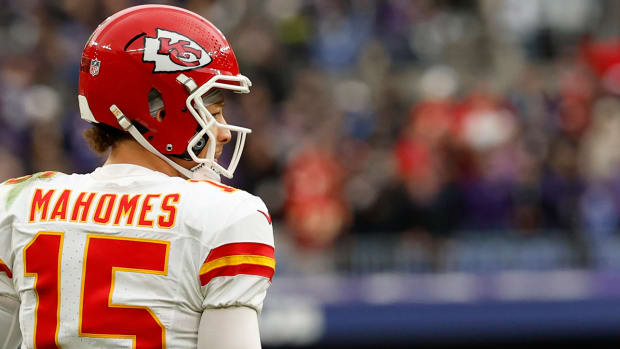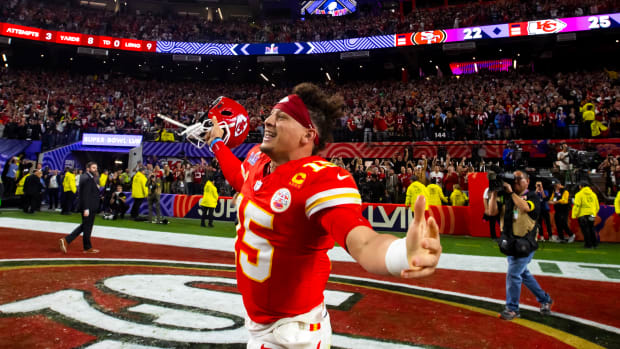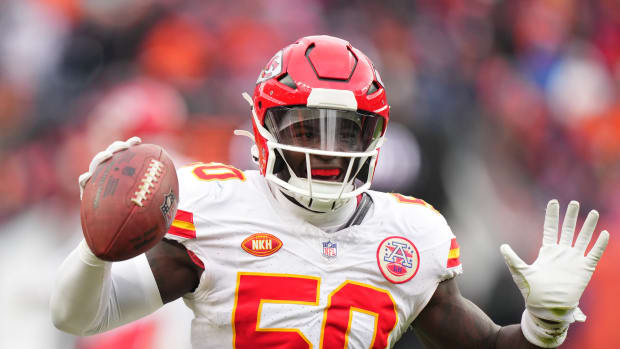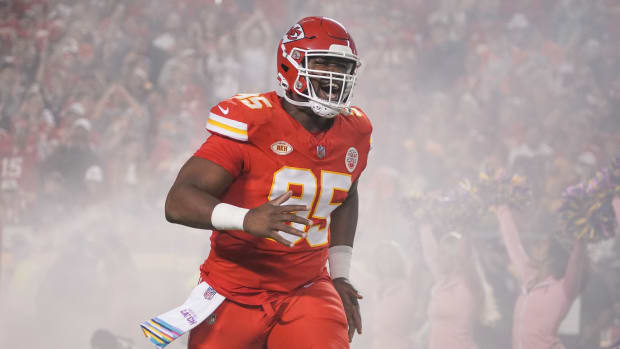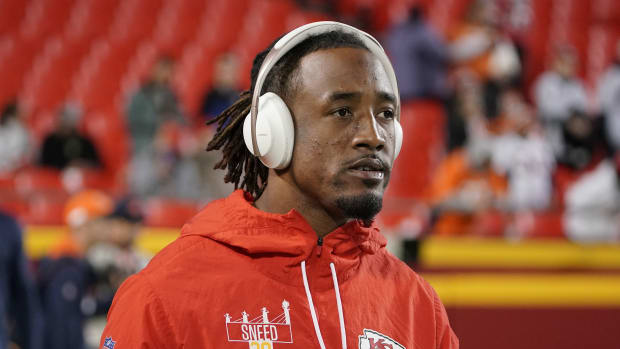Column: There Won't Be a Football Season in 2020
First, I want to start out by saying that I hope I’m wrong. Honestly. You won’t hear me say that very often but I truly want to be wrong. But I don't think we'll be watching football of any sort in 2020.
I — much like many others — desperately want and need football to come back. The only thing worse than a summer without sports is a fall without sports. Could you imagine going to a wedding on a weekend in October and actually having to pay attention to the ceremony because you can't sneak a peek at the football on your phone?
All across the league, teams are allowing season ticket holders to opt-out of their tickets for this season. Some teams, including the Chiefs, are already altering ticketing policies for reduced-capacity games. The Cincinnati Bengals have prohibited tailgating. The Jacksonville Jaguars will only have 25% of their seating capacity available.
Then, there’s this.
I’m not a scientist. I haven’t studied epidemiology. I don’t moonlight for the Center for Disease Control. But what I do know is that storing bodies in refrigerated trucks because you’ve run out of room in your morgues is not a sign of the pandemic waning.
While the pandemic forced the cancelations of all professional, amateur and collegiate sporting events in early March, many fans seem to think we have waited long enough, the pandemic is over, and we can go back to normal.
As it appeared we escaped the grasp of the COVID-19 pandemic destroying life as we knew it in the spring, we stand on the edge of the abyss once again.
According to The New York Times’ database, more than 3,197,200 cases of the coronavirus have been reported in the United States as of Friday, June 10.
Graph via The New York Times.
The United States surpassed 60,000 new cases for the first time Friday, setting a single-day record. This was the seventh time in 11 days the United States has set a single-day new-case record.
Now, the Coronavirus has infected more people than the combined populations of Wyoming, South Dakota and Washington, D.C. while the death toll has exceeded the population of Topeka, Kansas.
As numbers have soared the past two weeks, states that reopened first are reeling from the consequences of their actions.
Florida, where leagues have planned to restart their games in “bubbles,” saw a dramatic increase in cases. The state reopened on May 4 with a seven-day average of 680 new cases per day. As of July 9, Florida has a seven-day new-case average of 9,087 per day, an astonishing 1,236% increase. Florida has since begun to reverse its reopening. Florida is home to three NFL franchises.
Arizona — as mentioned above — is another state facing some staggering increases and there are no signs of the end.
Major NCAA Power Five conferences — including the Big Ten and Pac-12 — have transitioned to conference-only schedules for its fall sports. Stanford cut 11 athletic programs and the Ivy League called off its season entirely.
With basketball supposedly coming back, NBA commissioner Adam Silver said in a virtual interview with Fortune Brainstorm Health he worries of “a hole in our bubble.” Silver also said an outbreak within the “bubble” the NBA has put together would force the league to shut down once again.
How would that work for the NFL? The NBA has rosters of 17 players. The NFL’s rosters contain 53 players. The logistics needed to perform the same safety precautions are much more difficult.
Additionally, the NFL isn’t planning a “bubble,” so cross-country travel could severely affect the season.
If logistics weren’t enough, the NFL and the NFLPA still have some large issues to resolve before training camps start July 28.
The first, and possibly most important issue, is that players want daily testing. The league has resisted that idea. Secondly, players don’t want any preseason games. Instead of the preseason, they want a longer acclimation period because there were no physical offseason programs. Players also want to be able to opt-out of the season due to safety concerns.
The two sides also haven’t agreed on an emergency protocol, which could be a disaster if a case of Coronavirus gets on the field. Additionally, players and coaches aren’t required to wear face coverings on the sidelines.
Even beyond pure logistics, the NFL is the largest powder keg among sports hoping to restart. Players are more motivated in football than other sports to get onto the field and have a season because of average career length. To go along with that, there’s not a group of owners who care less about the safety of their players than NFL owners.
It’s a perfect recipe for disaster.
With all of this, it's hard to imagine football can safely take the field at the end of August. With no end to the pandemic in sight, there is no way to safely pull off a full NFL season. It's just too dangerous and there are more important things to focus on in this moment.
Washington Nationals pitcher Sean Doolittle said it best: “Sports are a reward for a functioning society.” The United States has been anything but, so why are we focused on playing football with fans in the stands in eight weeks while we keep breaking nationwide records for daily cases and deaths?
We are further away from sports than we’ve ever been.

